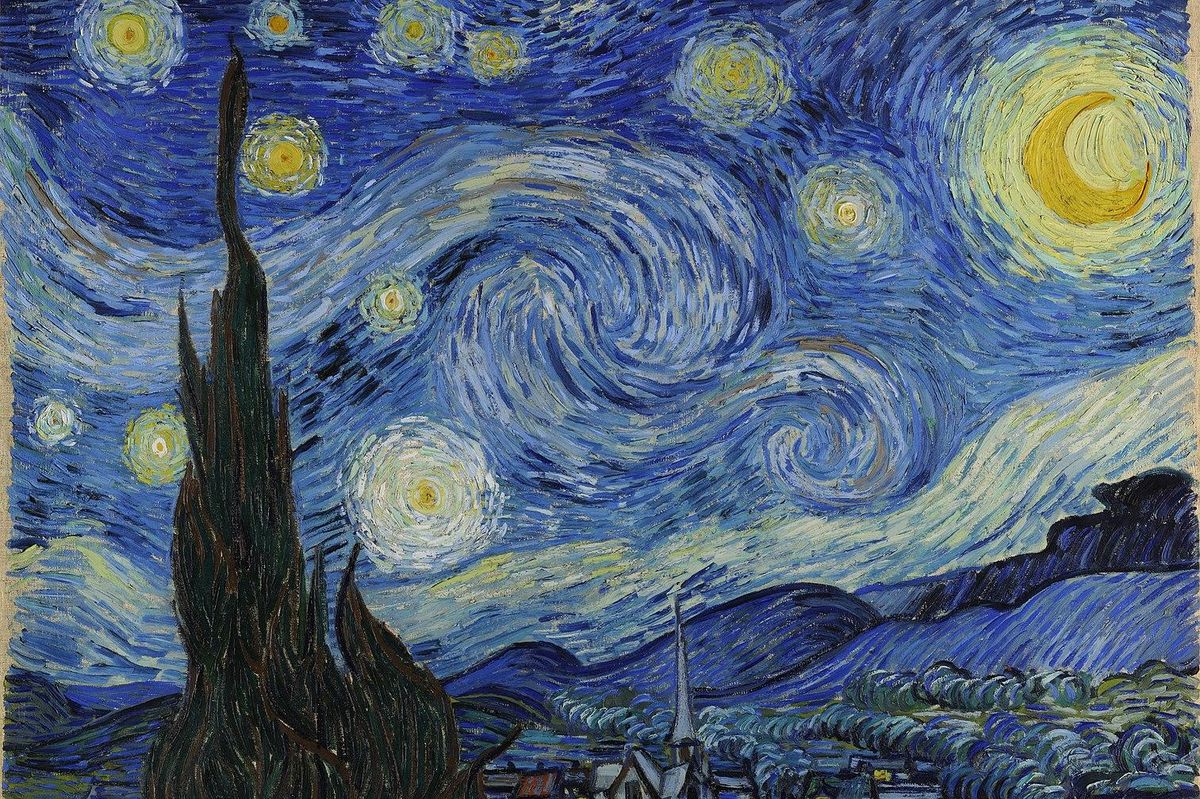In 125 years, millions of people have looked at this painting. No one really saw it until recently.
Van Gogh saw something it took scientists another 100 years to see.

Van Gogh’s Starry Night.
Van Gogh never got to enjoy his own historic success as an artist (even though we've been able to imagine what that moment might have looked like). But it turns out that those of us who have appreciated his work have been missing out on some critical details for more than 100 years. I'm not easily impressed, OK? I know Van Gogh was a genius. If the point of this were "Van Gogh was a mad genius," I would not be sharing this with you.
But I found this and I thought, "Oh, what a vaguely interesting thing." And then I got to the part about the Hubble Space Telescope, and, let me tell you: Mind. Blown. We've got the set up here, but you have to watch the video for the full effect. It's all the way at the bottom. Get this: Van Gogh was a pretty cool artist (duh), but as it turns out...

What’s the truth behind when you take off an ear?
...he was also A SCIENTIST!*
*Pretty much.
Here's the story.
While Van Gogh was in an asylum in France, after he mutilated his ear during a psychotic episode*...
(*Or, and I'd like to thank the entire Internet for pointing this out, there's a theory that his friend Paul Gauguin actually cut off his ear, in a drunken sword fight, in the dark. The more you know!)

Animated a thinking one-eared Van Gogh.
All Van Gogh GIFs via TED-Ed.
...he was able to capture one of science's most elusive concepts:
~~~TURBULENCE~~~

Turbulence expressed through art.
Although it's hard to understand with math (like, REALLY HARD), it turns out that art makes it easy to depict how it LOOKS.
So what is turbulence?
Turbulence, or turbulent flow, is a concept of fluid dynamics where fluid movements are "self-similar" when there's an energy cascade — so basically, big eddies make smaller eddies, and those make even smaller ones ... and so on and so forth.
It looks like this:

Pictures explain science.
See? It's easier to look at pictures to understand it.
Thing is, scientists are pretty much *just* starting to figure this stuff out.

Animation of referencing art to science.
Then you've got Van Gogh, 100 years earlier, in his asylum, with a mutilated ear, who totally nailed it!

Science studying Van Gogh.
The folks who noticed Van Gogh's ability to capture turbulence checked to see whether other artists did the same. Most impressionists achieved " luminance" with their art (which is the sort-of *pulsing* you see when you look at their paintings that really shows what light looks like).
But did other artists depict turbulence the way Van Gogh did?
NOPE.

Capturing concepts of nature.
Even in his darkest time, Van Gogh was able to capture — eerily accurately — one of nature's most complex and confusing concepts ... 100 years before scientists had the technology to observe actual star turbulence and realize its similarity to fluid turbulence mathematics as well as Van Gogh's swirling sky. Cool, huh?
Watch the video below to learn even more:
This article originally appeared twelve years ago.



